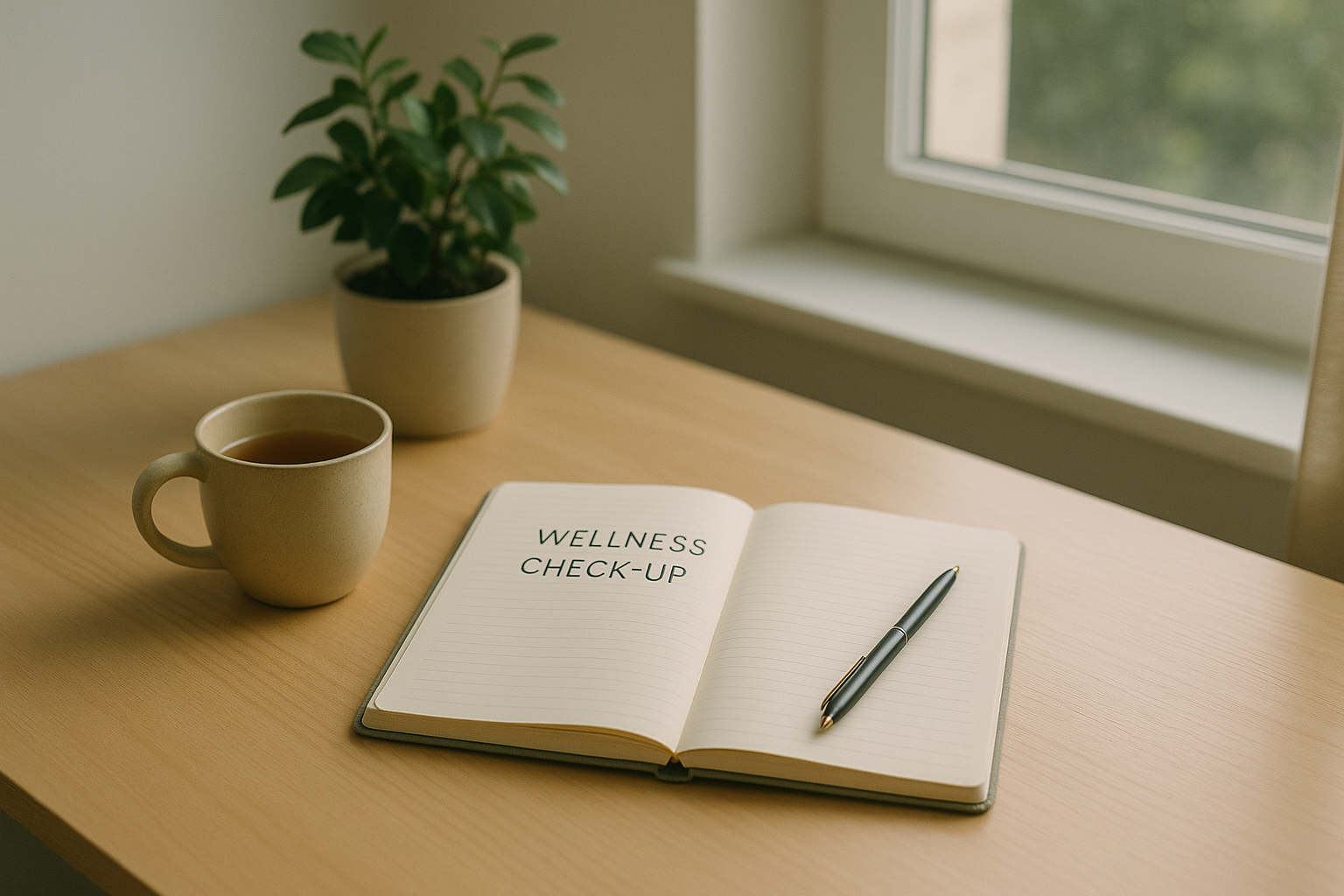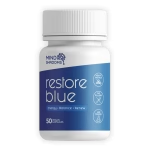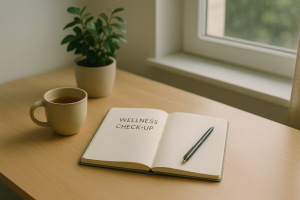Most people visit a doctor only when something feels wrong — a nagging pain, a persistent cough, or an unexpected shift in mood or energy. But by the time a symptom becomes noticeable, the body may have been working overtime for weeks, months, or even years to compensate for an imbalance.
This is where preventive care — and specifically, regular health check-ups — becomes vital. Not as a reaction to illness, but as a proactive way of partnering with your body to support long-term vitality.
In this article, we’ll explore why routine check-ups matter, what they typically include, and how integrating preventive care into your wellness routine can enhance clarity, calm, and resilience — mentally, emotionally, and physically.
What Is Preventive Care?
Preventive care refers to medical services and lifestyle choices aimed at:
- Detecting health issues before symptoms appear
- Managing risk factors early (like blood pressure or cholesterol)
- Promoting healthier habits through education and tracking
- Building a long-term picture of your personal health baseline
Preventive care isn’t about worrying about what could go wrong. It’s about creating a foundation for what can go right — through awareness, early action, and support.
Why Preventive Check-Ups Matter — Even When You Feel Fine
Health is a dynamic system. What feels “normal” today might be your body adapting to suboptimal conditions — like chronic stress, mild inflammation, or nutrient depletion. Regular check-ups can detect these shifts before they evolve into something more serious.
Let’s look at what regular check-ups help with:
1. Early Detection
- Many conditions (like hypertension, anemia, or insulin resistance) develop silently.
- Lab tests and physical exams catch imbalances before symptoms appear.
2. Tracking Personal Baselines
- Knowing what’s normal for you helps detect change over time.
- For example, a “normal” resting heart rate or vitamin D level for one person may be different from another’s.
3. Building Health Literacy
- Appointments are opportunities to learn more about your body and how to care for it.
- Understanding test results, risk factors, and options makes you a better partner in your own health.
4. Reducing Anxiety
- Many people avoid check-ups out of fear. Ironically, not knowing increases stress.
- Regular care builds familiarity and removes mystery from the process.
What’s Typically Included in a General Check-Up?
Depending on your location, provider, and age group, check-ups may vary. But many include:
Basic Vital Signs
- Blood pressure
- Heart rate
- Respiratory rate
- Temperature
Routine Blood Work
- Complete blood count (CBC)
- Lipid panel (cholesterol levels)
- Blood glucose levels
- Vitamin and mineral levels (D, B12, iron, etc.)
Physical Exam
- Listening to heart and lungs
- Abdominal check
- Reflexes and muscle tone
- Skin and lymph node inspection
Health History Review
- Lifestyle: sleep, nutrition, stress, movement
- Family medical history
- Medication/supplement usage
Recommendations
- Based on findings, your provider may suggest:
- Lifestyle adjustments
- Follow-up exams or screenings
- Preventive vaccines (like tetanus, flu)
- Referrals to specialists if needed
Preventive Care and Mental Wellness
We often separate physical and mental health — but regular check-ups are one of the few places where the two intersect.
Why?
- Your doctor may detect emotional exhaustion, anxiety, or early signs of burnout based on how you describe sleep, energy, or focus.
- Some symptoms (like fatigue, irritability, or trouble concentrating) can have nutritional or hormonal causes, not just emotional ones.
- A good check-up includes space for conversation, not just data collection — and that in itself can be therapeutic.
Even the act of scheduling care is empowering. It sends your nervous system a signal: I’m paying attention. I’m showing up. I’m safe.
Overcoming Barriers to Regular Check-Ups
Many people avoid preventive care due to:
1. Time constraints
It can be hard to justify time for something that isn’t “urgent.” But framing it as investing in future capacity — energy, clarity, resilience — can shift the mindset.
2. Cost concerns
Depending on your location and coverage, preventive care may be partially or fully covered. Community clinics, employer-sponsored programs, or wellness days can provide accessible options.
3. Fear of bad news
This is common, but reality is often less frightening than the unknown. And when something is detected early, outcomes are almost always better.
4. Negative past experiences
If previous appointments felt rushed or judgmental, try seeking providers who prioritize integrative or patient-centered care. Your experience should feel collaborative, not clinical.
Integrating Check-Ups Into Your Wellness Lifestyle
Preventive care doesn’t need to exist in a vacuum. It can become part of your broader wellness rhythm, alongside mindful eating, movement, and rest.
Here’s how:
📅 1. Create an annual wellness calendar
- Month 1: General check-up
- Month 4: Nutrition review or blood work
- Month 7: Movement or posture assessment
- Month 10: Mental/emotional health check-in (therapist or coach)
This spreads care across the year — and supports whole-person attention.
🧾 2. Track results year over year
Keep a private journal or digital folder with lab results, notes, and questions. Over time, you’ll develop your own picture of your body’s patterns — and feel more confident asking informed questions.
🤝 3. Treat check-ups as a collaboration
Bring a list of questions. Be honest about lifestyle challenges. Your provider isn’t just checking boxes — they’re partnering with you.
Questions to Ask During a Preventive Check-Up
To get the most from your appointment, consider asking:
- What do these results mean in context of my age/lifestyle?
- Are there early signs of imbalance I should be aware of?
- What habits or adjustments could support what we’re seeing?
- Should I recheck any markers in a few months?
- Are there natural ways to support what we’ve discussed?
This makes the appointment feel active — not passive.
Beyond the Basics: Functional and Holistic Additions
For those interested in expanded wellness tracking, some check-ups include or can be paired with:
- Nutritional deficiency panels
- Sleep quality assessments
- Gut health evaluations
- Hormone balance screening
- Movement/posture assessments
- Stress biomarkers (like cortisol)
These aren’t necessary for everyone, but they offer deeper insight into how your lifestyle, habits, and biology intersect.
Preventive Care Is Not About Perfection — It’s About Pattern Recognition
Health isn’t linear. You may have months where you feel energized and clear, followed by times of stress or imbalance. Preventive care doesn’t fix everything — but it helps you track patterns over time and make aligned choices.
This is about support, not control.
Final Thoughts: Choose Attention Over Assumption
Taking care of your health doesn’t mean living in fear. It means choosing curiosity over avoidance, clarity over assumption, and consistency over crisis.
Regular check-ups are not just medical appointments — they’re acts of respect. Respect for your future self. Respect for the systems that support you. Respect for the life you want to build and enjoy.
So if it’s been a while: schedule the visit. Not because something feels wrong. But because you’re committed to everything going right — for longer.







